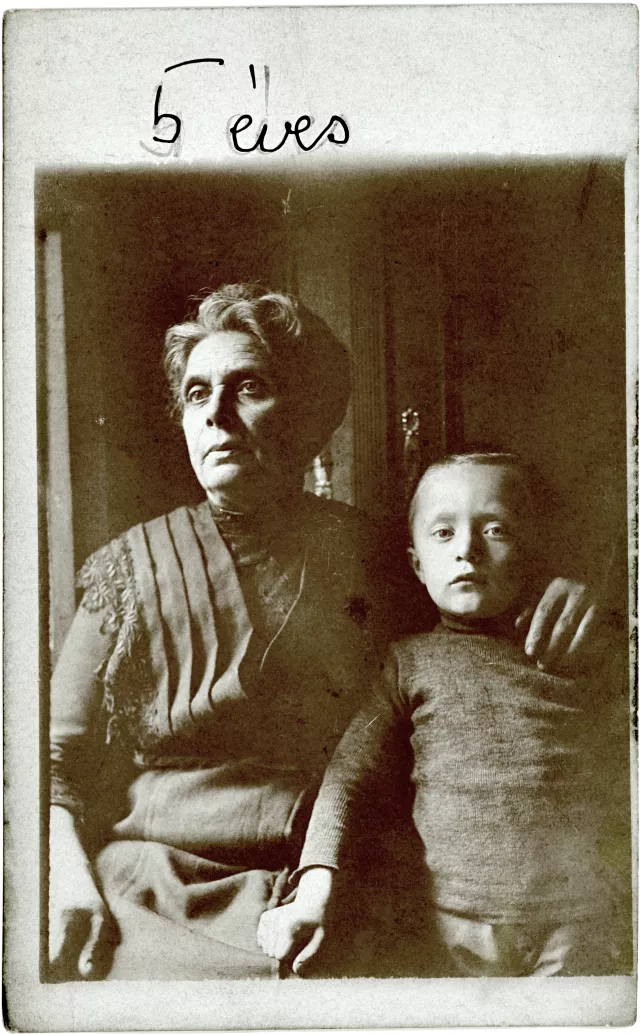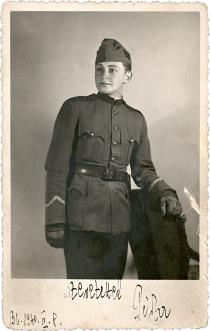Bettina Reich with her grandson Karoly Vajda
My grandmother and my brother Karoly are in this picture. Grandma was called Betti, I don't know her last name. She was called Reich after my grandfather. She was my mother's stepmother. The picture was taken here in Budapest, because they lived here on 3 Kisdiofa Street. They had come from Bonyhad, Tolna County, to Budapest. My brother is five years old in the picture. It was taken in 1913.
My maternal grandparents came from Tolna County. They lived in Bonyhad. My grandfather was Adolf Reich. I don't remember whether Grandpa had any siblings or not. My grandfather's family and the relatives didn't really deal with agriculture, rather with stock-farming. I remember a one-storied house with a garden.
My grandfather married twice. The family never talked about my real grandmother. I don't know anything about her, because she died very early. She was probably also from Bonyhad. They met there. The step-grandmother was a certain Aunt Betti. I don't know whether she was from Budapest or not. I only remember her from here, from Pest. My grandfather and my step-grandmother were buried here in Budapest. Two girls were born from my grandfather's first marriage, my mother, Roza Reich, and my aunt, Hermina Reich. My mother and grandma Betti were on good terms, they liked each other. At least I don't know of any conflicts between them. Four children were born from my grandfather's second marriage, three girls and a boy. Jeno Reich was the boy. The girls were Frida or Frici Reich, Sara Reich and Eszter Reich.
I don't know when my grandparents moved from Bonyhad to Pest, but my mother and my father met here in Pest, in the Liget [City Park]. My grandfather and his two daughters, Hermina and Roza, used to take walks in the Liget City Park every Sunday.
The relatives in Bonyhad were very religious Orthodox Jews. We spent the summer several times in Bonyhad when we were children; we spent quite a lot of time there. This must have been in the 1920s-1930s. They observed the holidays strictly, the Friday night for example. They stopped working on Friday afternoon; they cleaned the house, then cooked dinner. There was meat soup and beef with tomatoes quite often. We had to eat that almost every Friday. When we spent the summer there we went to the synagogue in Bonyhad on Friday evenings. And nobody worked on Saturdays. They managed a kosher household of course. My grandfather observed the rules of the kosher household strictly. I don't know anything of the relatives from Bonyhad. They might have been deported.































